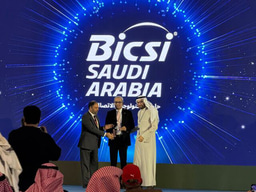The Latest from Microsoft on AI's Impact on Meetings

Meetings are becoming more about value creation
The workday is often a balancing act between crucial meetings and focused work. And our 2023 Work Trend Index Annual Report found that all too often, people join an hour-long meeting for a one-minute insight, pushing valuable focus work to after hours. Now we’re seeing AI flip that on its head—some companies are reducing time spent in meetings, and others are making the time spent in meetings more valuable.
We saw AI start to reduce the time spent exchanging information in meetings: People using AI at a consulting firm spent 16% less time in meetings. An energy company saw a 12% increase in the number of meetings being left early, suggesting that people may feel comfortable bowing out because they can use Copilot to get meeting notes, ask questions, and check on action items.
We also saw with AI that meetings are becoming opportunities for new forms of co-creation: At the materials science company Dow, a team that produces technical white papers began using meetings to reinvent how they write. For some paragraphs they asked Copilot to craft a first draft, which they reviewed together and refined. Other times, they scheduled meetings for the express purpose of discussing the white paper topic in depth, with the aim of handing the transcript over to Copilot to weave it all into a cohesive, clear write-up. “It eliminates so much of the back-and-forth,” says Brandon Toyzan, a technical architect at Dow. “We have that quick conversation and get everyone’s point of view, and we automatically have a draft.” He says a process that once required hours of back-and-forth can now be accomplished in a 30-minute conversation. Think of the process as “writing out loud”—they come into a meeting with a blank page and wrap up the call with a solid draft.
For valuable insights about how to use smart rooms to create smart meetings, read this article.
For more details on the Microsoft study, visit: https://www.microsoft.com/en-us/worklab/ai-data-drop-3-key-insights-from-real-world-research-on-ai-usage
Recommended Content
LetsTalkAVbyAlexis Series: Episode 5:The Most Repeated Mistake in AV Projects: Treating AV as Equipment, Not a System

End 2025, Enter 2026 (AV Industry)





Please sign in or register for FREE
If you are a registered user on AVIXA Xchange, please sign in